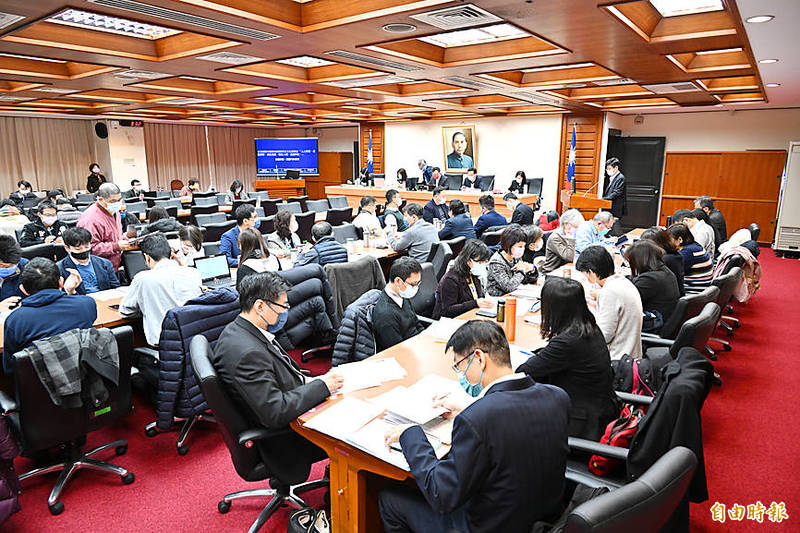《TAIPEI TIMES》 More young people suspected of fraud

Legislators in the Education and Culture Committee meet at the legislature in Taipei yesterday to discuss fraud and money laundering on college campuses. Photo: Tu Chien-jung, Taipei Times
EDUCATION KEY: In the first 10 months of this year, there were 8,207 suspects and 7,442 victims of fraud aged 18 to 23, a legislator said, calling for the issue to be tackled
By Liu Tzu-hsuan / Staff writer, with CNA
More than 8,000 people aged 18 to 23 were implicated in fraud cases in the first 10 months of this year, up 20 percent year-on-year and outstripping the number of fraud victims in the same age group, the legislature’s Education and Culture Committee said yesterday.
The committee held a public hearing on fraud and money laundering on campuses, discussing topics such as artificial intelligence, cryptocurrency, digital assets, digital human rights, fintech and the metaverse.
In the first 10 months this year, there were 8,207 fraud suspects aged 18 to 23, accounting for 21.87 percent of fraud suspects in all age groups, Democratic Progressive Party Legislator Michelle Lin (林楚茵) said, adding that there were only 7,442 fraud victims in the same age group.
The age group includes university graduates who are about to enter the workforce, but might make bad choices due to ignorance, she said.
She underlined the importance of media literacy in an ever-changing digital world, urging the government to propose measures to prevent people from being scammed or becoming an accomplice to scams.
Chinese Nationalist Party (KMT) Legislator Cheng Cheng-chien (鄭正鈐), who chaired the meeting, called on the Ministry of Education to provide education on the metaverse, digital assets and financial technology in colleges and universities.
The courses should help students to acquire a good understanding of the fields, develop expertise in related industries and prevent them from being scammed, he said.
The ministry should propose feasible plans and provide financial subsidies, he added.
Department of Student Affairs and Special Education Director Wu Lin-hui (吳林輝) said that the ministry is in charge of “identifying scams” in the Executive Yuan’s anti-fraud action plan.
The Cabinet approved the plan on July 15 to tackle fraud from four angles: identifying, blocking, preventing and punishing, he said.
The Ministry of the Interior, the National Communications Commission, the Financial Supervisory Commission, the Ministry of Justice and the education ministry are working together on the action plan, he added.
As students come from a range of backgrounds, they might fall victim to fraud for different reasons, he said, adding that they should be taught to identify scams with methods designed for their specific age group and circumstances.
College and university students are most likely to fall for scams involving cryptocurrency investments, online shopping and canceling ATM installment payment plans, he said.
National Education Radio has cooperated with the education ministry to produce five anti-fraud educational programs and 20 news reports, and has run anti-fraud advertisements 50 times, he said.
The education ministry has also worked with universities to provide courses for teachers on rule of law education, he said.
Industry insiders and academics have said that actions combating fraud should be more in line with international standards, Cheng said.
They have advised the education ministry and Ministry of Digital Affairs to organize summer or winter camps to combat fraud and money laundering, as well as international seminars and lectures to exchange ideas with experts from around the world, he said.
新聞來源:TAIPEI TIMES













